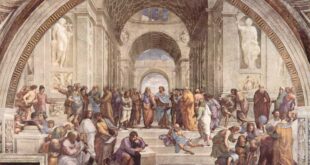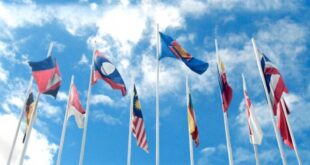In psychology, there’s a phenomenon called Stockholm Syndrome, a condition where the victim begins to sympathize with and even feel loyalty toward their oppressor. This is an apt metaphor for what has been happening to the educational systems in many Arab countries. As we look toward the future, it’s essential to reflect on the lessons of history. Yet, in doing so, we must recognize that what we are witnessing now is not entirely new—it’s just the latest manifestation of external pressures shaping the unknown into the familiar.
The transformation of Arab educational curricula began in earnest around 2014. This shift was not organic, but rather the result of relentless pressure from Western powers, particularly the U.S. and Europe, with Israel’s subtle yet significant infiltration into the educational sectors of various Arab nations. The goal? To reshape public opinion in favor of Israel.
International organizations like the Institute for Monitoring Peace and Cultural Tolerance in School Education (IMPACT-SE), based in London, and the Anti-Defamation League (ADL) in the U.S., have actively monitored and even influenced these changes. These entities have pressured Arab nations to redraw maps to include Israel and teach Arab students about historical events like the Holocaust—an agenda aimed at altering perceptions of Israel among future generations.
In preparation for this piece, I used artificial intelligence to analyze Israel’s own educational materials. The contrast could not be starker. Israeli curricula are deeply rooted in Zionist ideology, laced with overt racism and a sense of superiority over Arabs. Much of this is based on interpretations of the Talmud, presenting an alarming militarization of young minds. By the time Israeli students reach secondary school, many are already mentally conditioned to be soldiers.
Racist content is deeply embedded in all stages of Israel’s educational system, particularly in subjects like history and geography. Some of the most troubling examples include textbooks like Derech HaMalim (The Path of Words), The Jewish Pioneers, and The Twentieth Century on the Threshold of Tomorrow, which portray cities like Hebron as ancient Jewish lands, erasing centuries of Arab presence. Israeli civics and geography books reinforce the notion of a divine right to land, while history books promote a one-sided narrative that erases the Arab-Islamic identity and roots of the Israeli-Palestinian conflict.
Perhaps most chillingly, these texts promote the concept of Jewish exceptionalism—God’s chosen people—while depicting Arabs as inferior, violent, and untrustworthy. Zionist literature describes Arabs as backward shepherds, portraying them as snakes or criminals driven by primal instincts. Meanwhile, Jews are depicted as the epitome of civilization.
I recently watched two videos that left an indelible mark on my mind. The first was of Israeli orphans, children of fallen soldiers, being welcomed by Prime Minister Netanyahu. Each child received a model of the Third Temple, to be built in place of the Al-Aqsa Mosque, as a gift. The second video was even more disturbing: it showed young students in religious schools being quizzed about Jerusalem. When asked what they think of when they hear “Jerusalem,” they unanimously replied, “The Holy House that will soon be built!” When asked what would happen to the Al-Aqsa Mosque, they calmly answered that it would be destroyed. The final question? “What do you feel when you meet an Arab child?” One boy responded, “I feel angry and want to kill him.”
While Arab countries rush to revise their curricula, toning down any anti-Israel sentiment and promoting messages of tolerance, Israel has made no such changes. Its curricula remain filled with content that is not only provocative but outright dangerous, instilling hatred and aggression toward Arabs and Muslims from a young age. Yet, not a single Arab leader has dared to publicly criticize Israel’s educational content, let alone demand its reform.
The question we must ask ourselves is simple: If our curricula are being changed to foster peace and understanding, why isn’t Israel doing the same? Why are we being pressured to forget our history, while Israel continues to teach its children to view Arabs as enemies?
The imbalance is glaring, and it’s time we start addressing it. We cannot continue to reshape our future at the cost of erasing our past, all while ignoring the indoctrination taking place just across our borders. If there is to be peace, it must be built on mutual respect, not on the suppression of one narrative in favor of another.
Al Batayneh is a former member of the Jordanian parliament.
 Geostrategic Media Political Commentary, Analysis, Security, Defense
Geostrategic Media Political Commentary, Analysis, Security, Defense





